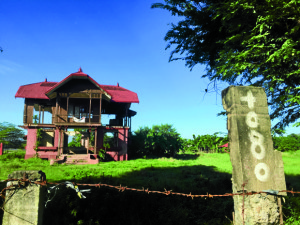The long-standing relations between the Philippines and the United States are “stronger” than anyone thinks despite President Rodrigo Duterte’s continued verbal attacks on the US government, according to an American security analyst.
While Mr. Duterte’s pronouncements that are “clearly at odds with the realities of the US-Philippine alliance … have caused confusion, hurt feelings and in some quarters, anger…,” the United Stats can look at the situation as an opportunity to articulate that it would defend Filipino troops or vessels that would come under attack as stated in the Mutual Defense Treaty, said Gregory Poling, head of the think tank Asia Maritime Transparency Initiative.
“The United States should also recognize that in the face of consistent Chinese threats, the Philippines has reason to want reassurances about the US commitment to its defense. Duterte has repeatedly questioned American willingness to defend the Philippines,” Poling said.
In case of attacks
He noted that a 2015 Pew Research Center found that US allies—the Philippines, South Korea and Japan—expressed trust that Washington would come to their aid should China launch a military attack.
“Article V of the Mutual Defense Treaty is clear—the United States bears a legal and moral commitment to respond to attacks on Filipino troops or public vessels, whether in the Philippine archipelago or in the disputed waters and reefs of the South China Sea. Nevertheless, it wouldn’t hurt to say so aloud,” Poling said.
With Mr. Duterte and his Foreign Secretary Perfecto Yasay bringing up “historical animosities,” Poling said American officials “should take the opportunity to address the darker aspects of our colonial past, recognizing pain caused while refocusing on future cooperation, much as President Obama did in recent speeches in Laos and Vietnam.”
“They can remind both our countries of the obvious—that just as the Philippines has evolved dramatically in the last century, the America that elected Barack Obama is much changed from the America of Taft and Roosevelt,” Poling said.
Complacency issue
Poling also stressed that despite Mr. Duterte’s anti-American stance, “the US shouldn’t be complacent.”
“The Duterte government’s decision to cancel all joint exercises with the US military—roughly 30 a year—will weaken our ability to respond together to external threats and natural disasters in the Philippines. But neither should the United States write off the Philippines by underestimating the strong commitment of its people to our alliance,” Poling said.
“Democracies are messy by design and leaders are elected on domestic, not foreign, policy. Rodrigo Duterte was duly elected with almost 39 percent of the vote. That is a lower vote share than will likely be cast on Nov. 8 for a US candidate deeply skeptical of our alliances. Neither result is in line with the deep-held commitments of our peoples,” he added.


